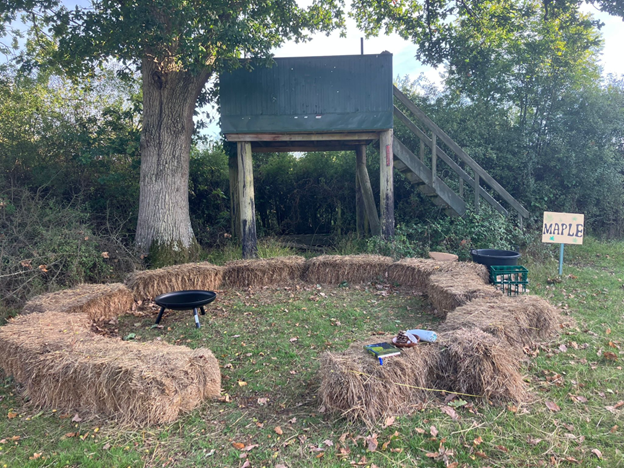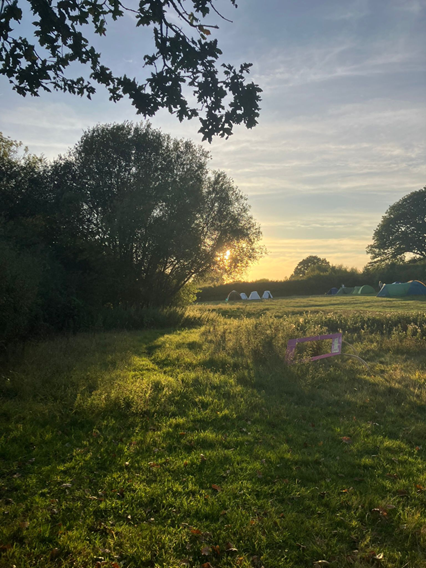I didn’t think I’d write a poem
By Jess Grynfeld, Co-Founder, Wild Thing Poetry
For me, September has something literary in its lining. It weaves together threads of academic beginnings, and I am reminded of years of educational milestones every time it comes around. Lessons I learnt begin to layer with the leaves.
It’s perfect timing, then, that the first weekend of September sees me on my way to learn—this time at Knepp’s 3500-acre rewilding project. I’m joining Overgrowth South, a youth summit hosted by Young Wilders, to hear from skilled ecologists, founders and environmental stewards.
My job? To add poetry to the mix.
Cows roaming on the Knepp estate.
By lunchtime I’ve met a whole host of interesting and interested people. We encounter rootling Tamworth pigs and fluffy longhorn cattle. Someone spots a skull embedded in the earth and identifies it as a fox’s.
Nature has its audience, and knows it. A muster of white storks spiral ahead, wheeling on two-meter wingspans while we pass around binoculars.
And in the shadow of their spectacle is a poet’s question:
How can words bear witness?
Maple stage, the perfect setting for a poetry workshop.
A ‘just-in-case’ packer, I’ve brought an assortment of natural objects—a hoary feather, a pinecone, a sea-smoothed pebble—none of which are needed. This group are at home foraging amongst the falling acorns, returning quickly with chosen muses ranging from lichen-coated sticks to blackberries.
I start by leading them in an exercise of renaming, creating new phrases and meanings. Juxtapositions expose themselves, jostling for examination and feeding into the poems that form.
Golden hour arrives. Our natural objects have become poetry—the berries a shape poem with rhyming couplets, the lichen stick a meditation on mortality. Yellow fleabane gets to challenge its name, becoming one with the sun instead.
I’m met with delight when I point out that one poem is an accidental ode; more precisely, an ode to a thistle. There’s joy mixed with surprise: “I didn’t think I’d write a poem!”
Sharing new poems at golden hour
We all feel this when the right words fall out of us, as if by magic. But, for me, one of the many learnings of the day was that the role of the ecologist is much like the poet’s. Both hinge on paying attention. The poems had a precision to them, enriched by scientific observation of the natural world.
The role of the ecologist is much like the poet’s: both hinge on paying attention.
It was a pleasure to hear these ecologists find their poetic voices, and I hope they will keep using them.
Jess Grynfeld
Cover photo by Koto Atkins, Young Wilders. Other images by Jess.


